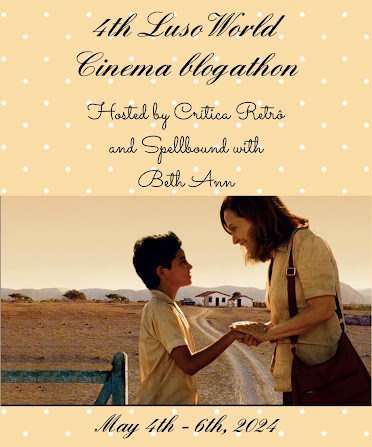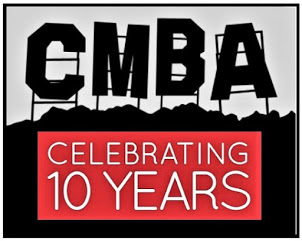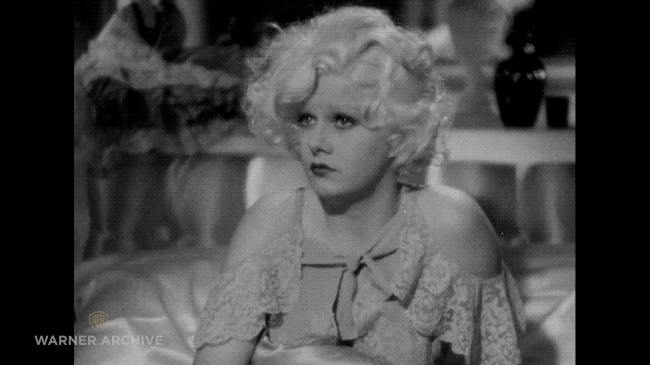
Kirk Douglas is pleased with Lana Turner’s performance – for now. Image: The Guardian
*SPOILER & CYNIC ALERTS*
Quick! Without searching online, do you know who won the Pulitzer Prize for fiction last year? … Anyone?
Alas, this is the downside of winning a Big Prize. In time, winners’ names become reduced to a trivia answer. (“I’ll take last year’s winners for $200, Alex.”)
There are countless movies that examine winning big prizes or, rather, winning big in life. One film, the 1952 drama, The Bad and the Beautiful, examines winning in Hollywood.
We think The Bad and the Beautiful could be the ultimate Hollywood film, but not in the way you might expect.
First, let us say this is a well-crafted film with inspiring performances. It would take us at least week to describe how brilliantly cast these actors are, under the expert direction of Vincente Minnelli.
Told through flashbacks, the film is cordoned into three sections as told from the perspective of three characters, each a member of the Hollywood elite. Common to all of these characters is Jonathan Shield (Kirk Douglas), a ruthless but charming movie mogul who uses people then beats them at their own game.
Douglas’ character has been exiled from Hollywood and is languishing in Europe. In an attempt to resuscitate his career, he arranges a phone meeting with the three people he’s used the most: a film director (Barry Sullivan); an actress (Lana Turner); and a screenwriter (Dick Powell). Each of these has a heart-wrenching story of how Douglas used them and knocked them aside.
At first the trio is reluctant to have the teleconference with Douglas, let alone work with him again. But Douglas’ ally/producer (Walter Pidgeon), a smooth-talking diplomat, explains to each of them how Douglas has actually boosted their careers. The director has twice been awarded an Oscar. The actress is a top box-office draw. And the writer has won the Pulitzer Prize.
See? Douglas’ character isn’t that bad, explains Pidgeon. He’s actually helped you people. It’s not like he’s killed anyone.
Oh. Wait a minute.
Let’s look at Powell’s character. He wrote a Pulitzer-Prize-winning novel about a southern woman based on his late wife; a woman who died in an accident during an illicit rendezvous that Douglas had arranged. Douglas didn’t mean for the woman to die; after all, it was her choice to jump at the bait he offered. Is it Douglas’ fault he spotted her weakness and gave her a push? But now that she’s dead, Powell ends up writing the Great American Novel. Pidgeon’s character tells Powell he should be grateful.
Grateful? For losing his wife?
Similarly, Sullivan’s character thinks he’s Douglas’ friend and entrusts him to direct a screenplay he wrote. Douglas steals the screenplay and manages to get Sullivan fired from the project. As for Turner’s character, she falls in love with Douglas; their relationship lasts during the filming of a movie, then he dumps her without warning.
Pidgeon also tells Sullivan and Turner they should be grateful, too. Being used and stabbed in the back in return for more money and fame is worth it, apparently. Why else would you develop relationships?
Is this really the underlying message here? Relationships are expendable when furthering your career? It’s all worth it if you attain greater material success?
The Bad and the Beautiful is a perfect example of a character-driven film and, if you haven’t seen it, you really ought. You may not agree with our cynical view of the film, but we think you’ll be intrigued by its steely-eyed view of Hollywood.
The Bad and the Beautiful: starring Kirk Douglas, Lana Turner, Dick Powell. Directed by Vincente Minnelli. Written by Charles Schnee. Metro-Goldwyn-Mayer Corp., B&W, 1952, 116 mins.










love this movie. the cast alone makes it amazing but the material gives them all something to do.
LikeLike
You’re right about the material. The script is something the cast can – and does – sink its teeth into. They’re all exceptional here, especially Lana Turner. I think she gives the performance of a lifetime here. The scene where Douglas dumps her is fantastic. She couldn’t be better.
LikeLike
This is one of my all-time favorites, so much to love about it – from the writing to the acting of the several lead players to David Raksin’s memorable score. Definitely one of Minnelli’s best. And that’s sayings something.
LikeLike
That IS saying something! This is my fave Minnelli movie. He did a perfect job.
LikeLike
I do not know of this film at all. Love the cast. though, and your review has piqued my curiosity. It’s another one for my list of movies to watch. Thanks! 🙂
LikeLike
It’s a really thought-provoking movie that raises a lot of questions. Kirk Douglas is perfect as the ruthless movie mogul.
LikeLike
I think the cynical nature of THE BAD AND THE BEAUTIFUL makes it one of the best Hollywood movies about Hollywood.
LikeLike
I agree, Rick. This movie certainly doesn’t sugar-coat it!
The interesting thing about this film is, even though it’s about Hollywood, the ways in which Douglas treats his “friends” is familiar to all of us. Who hasn’t encountered a Jonathan Shield at some point in their life?
LikeLike
Sounds like a really interesting movie. I am also going to put it on my list of movies to watch. I am curious as to how they go about showing how Kirk Douglas influences all of their lives for good. Do they go back and replay the past for each character? I look forward to seeing how they do it.
LikeLike
Shari, I think you’d really like this one. It’s told through flashbacks, and it gives you a lot to think about. Plus, the acting is SO GOOD. Kirk Douglas shows us why he’s one of the greats in this film.
LikeLike
Ruth,THE BAD AND THE BEAUTIFUL is another one of those movies that I only seem to see in bits and pieces on TCM and such. I must catch up with it from start to finish, especially with such Team Bartilucci favorites in the cast, especially Dick Powell and Walter Pidgeon! Superb review, my friend, as always!
LikeLike
Dor, the next time it’s on TCM, you must promise to make yourself a cup of tea (or something “stronger”), put your feet up and enjoy this movie. I’m very interested to hear what you think of it.
LikeLike
I’d vote either this or The Player for ultimate Hollywood film.
LikeLiked by 1 person
Oh yeah – The Player is a fabulous film about Hollywood. Just your mentioning it makes me want to see it again.
LikeLike